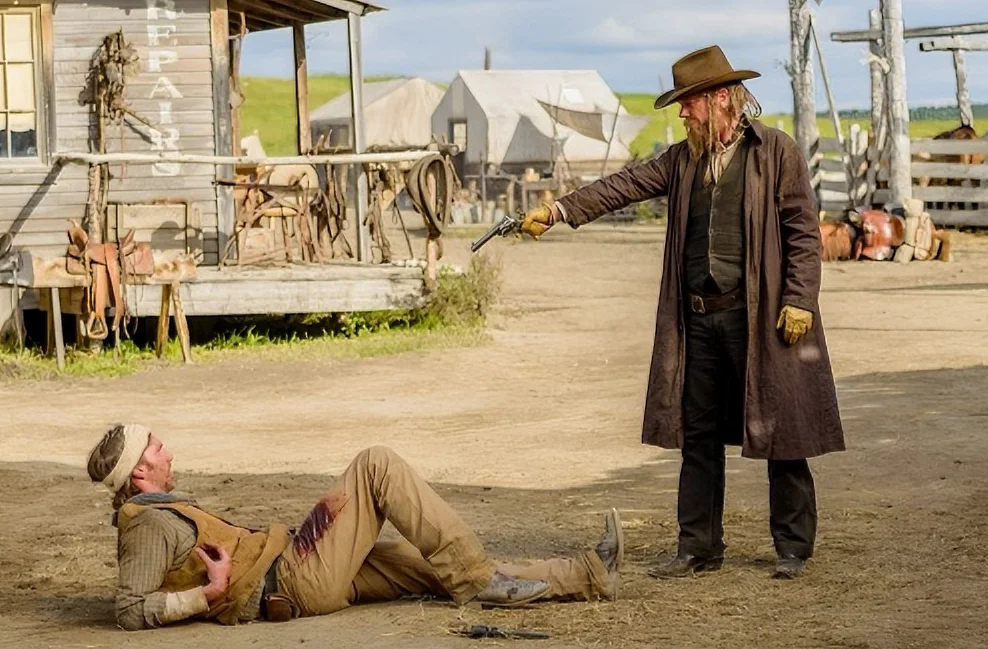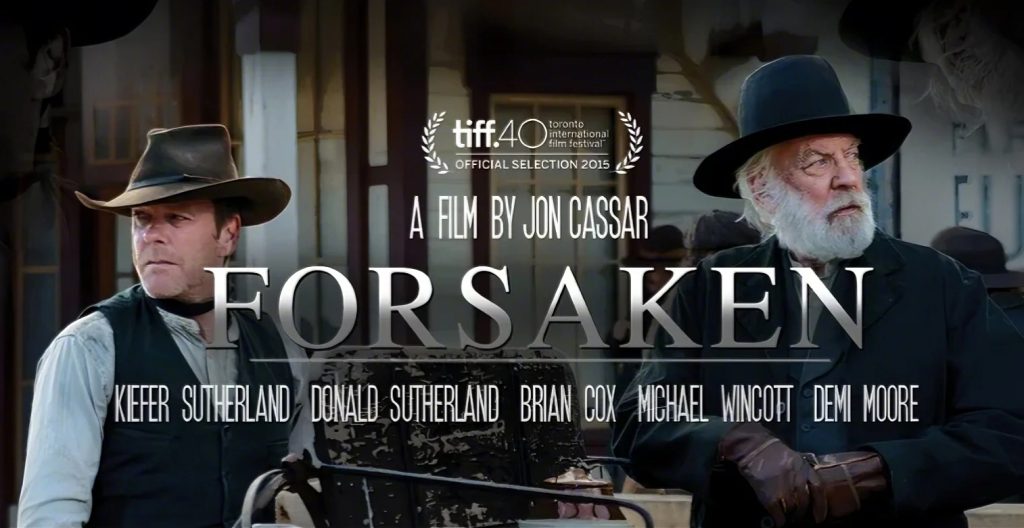Forsaken (2015)
“Redemption is never easy.”
Forsaken (2015) is a quietly powerful revisionist Western that trades spectacle for soul, delivering a story rooted in regret, reconciliation, and the unrelenting pull of the past. Directed by Jon Cassar and featuring a rare and deeply affecting pairing of Kiefer Sutherland and his real-life father Donald Sutherland, the film unfolds not as a typical gunslinger tale, but as an elegy for the men the West left behind—and the ones trying to make peace with what remains.
Kiefer Sutherland plays John Henry Clayton, a former gunfighter returning to his hometown in 1872 after years of violence and loss. He arrives not seeking confrontation, but salvation: from the ghosts of war, from the trail of blood he’s left behind, and above all, from the disappointment in his father’s eyes. Donald Sutherland, as Reverend Samuel Clayton, brings a restrained but searing performance—a man of faith still mourning a son lost to the gun, unsure whether he can ever trust what has returned home.

But peace is short-lived. The town is under siege by ruthless land baron James McCurdy (Brian Cox), whose hired guns terrorize local homesteaders into submission. John Henry, committed to pacifism, tries to stay out of it—until violence comes too close, and the past he’s trying to bury demands a reckoning.

With sweeping cinematography and a stripped-down narrative, Forsaken finds strength in its stillness. It doesn’t glorify violence—it interrogates it. The shootouts, when they come, are brutal, intimate, and carry emotional consequence. Demi Moore adds grace to the mix as Mary Alice, a woman tied to John Henry’s past, while Michael Wincott stands out as a philosophical hired killer who recognizes something in John Henry that the rest of the world has forgotten.

More than a return to form, Forsaken is a return to values often lost in modern Westerns: restraint, character, and emotional truth. It’s about fathers and sons, about second chances, and about how sometimes, the hardest man to forgive is yourself.
